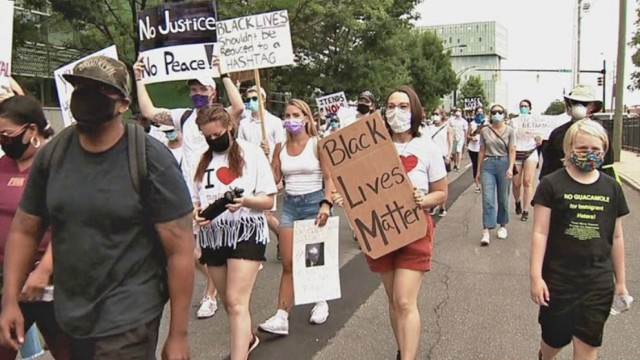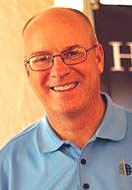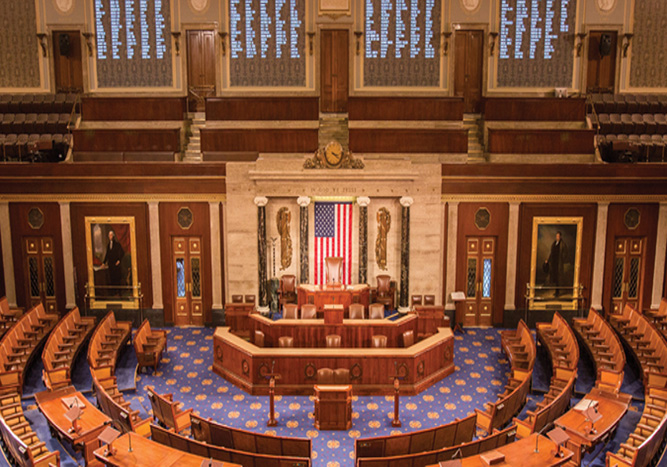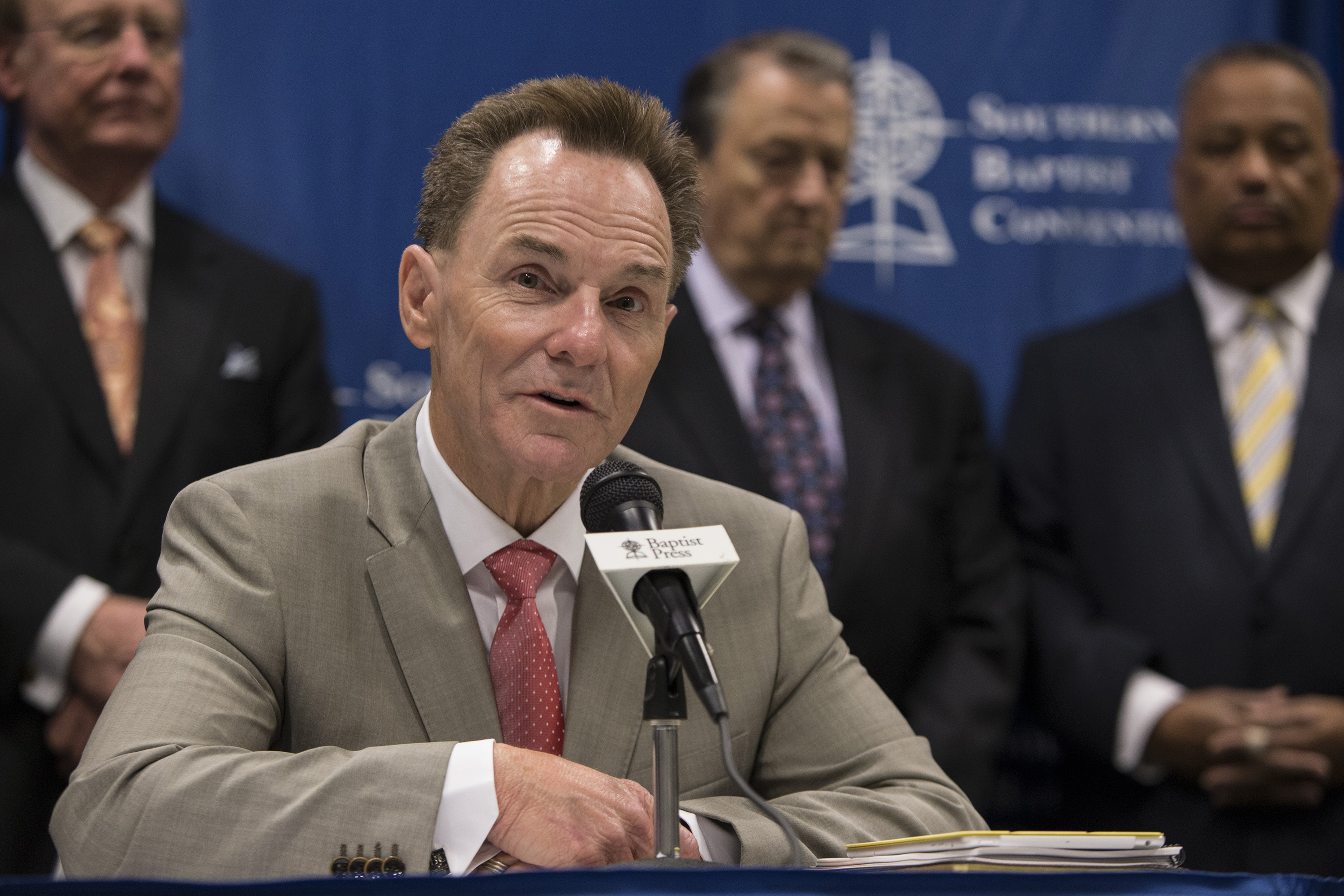
AUSTIN, Texas (BP) — Mitchell Johnson, The Austin Stone Community Church collegiate pastor, has addressed the nation’s racial turmoil by offering his students biblical insight on the topic.
 Johnson, along with other church leaders throughout the United States charged with leading and mentoring college students, hasn’t had the option to ignore racial topics over the last month. Students have often been at the forefront of the protests that erupted after George Floyd’s death on May 25.
Johnson, along with other church leaders throughout the United States charged with leading and mentoring college students, hasn’t had the option to ignore racial topics over the last month. Students have often been at the forefront of the protests that erupted after George Floyd’s death on May 25.
“I have talked to them about Jesus, continually reminding them who Jesus is, what He stands for, why Jesus had to come, live the perfect life and die for us so that we can have a relationship with God and why those things matter,” Johnson said.
Johnson, who is African American, points out the implications of Jesus’ life, death, resurrection and ascension. He examines what the Bible has to say about race, ethnicity, partiality and bias. Most of those in his ministry are Asian or white.
For a little more than a year, Johnson has served as the student pastor for the approximately 1,000 local college students who call Austin Stone home. Johnson says about 40 percent of the church’s collegiate leaders are white and 40 percent are Asian. The other 20 percent are either black or Hispanic. The student ministry’s attendance roughly matches that diversity level.
Johnson says he has emphasized the importance of listening during this time.
“Especially in our times right now, it’s easy to just see an article or a photo and respond without really leaning in and listening,” Johnson said. “We can be watching, but we may not be listening. We really encourage everyone to listen, specifically listening to black people to be learning from black voices in order to diversify. We try to help them and give [students] a bunch of resources on how to grow in their understanding of America’s history when it comes to race.”
Texas native Rashard Barnes, who moved to Charlotte, N.C., three years ago to serve as a campus pastor of Mercy Church, also tries to engage college students. Mercy Church, a majority white congregation, is in the process of shuttering the campus Barnes leads and opening up a new one in a diverse, mostly collegiate area of the city. Both Barnes and Johnson previously served on the staff of Redeemer Church in Lubbock.
Barnes, who is also African American, helped lead a peaceful protest of more than 3,000 people in Charlotte last weekend.
“I want them to understand, one, that racism is the sin of partiality,” Barnes said, referencing the biblical Book of James. “Just because people aren’t being expressively hateful, it doesn’t mean that they don’t have some racism within them. Because there are a lot of subtle ways to how people do that. You see a minority walking across the street and you end up looking at him strange, or women clutching their purses. It’s all those things.”
Barnes, who is writing his doctoral dissertation on unity in the church, describes a process where churches move from a place of lamenting to cross-cultural unity. He has been teaching a class at the church about these steps.
“In order to get [to cross-cultural unity], you have to first lament of what’s happening in our current state right now. That’s what I’m trying to get people to see,” Barnes said. “Then secondly, after you lament, then there’s repentance. And after there is repentance, then there’s justice. And after justice, there’s reconciliation, and after reconciliation, then there’s unity. I’m trying to get them to see that one conversation is not enough.”
Johnson notes both advantages and disadvantages to being of a different race than most of his students during this unique period. Many of the students he leads have never experienced African American leadership.
“I see a lot of advantages of being a black person in leadership because most of the time, especially when our white students become leaders in our ministry, this is also discipling them to be under the leadership and authority and to listen to black people,” Johnson said. “I think it has a huge benefit. When any white person sits under the authority and leadership of any person of color, it is incredible. I think that helps them grow to be more empathetic people, especially if that leader is upfront and honest and real with them and is willing to share their life with them.”
For African American students, Johnson is trying to encourage them and discern how they are processing current events. He encourages them to share their stories with him and their small group leaders. He also points them to the church’s counseling center for additional help.
For white students, he says conversations on race often go to the Gospel.
“I’ve been able to repeat and share the Gospel with many people,” Johnson said. “There have been many moments I’ve had with white people over the past couple weeks, where … I kind of feel some of their guilt and shame creeping into those conversations. I’ve been able to remind them that this is why Jesus came to die. You and I are not perfect. It’s okay to admit that you are racist. … But the beautiful thing about that is that you have a redeemer who died for all sin.”
Barnes said the Gospel speaks directly to the issues brought out by the unrest of the last few weeks. Many are responding to current racial pain with feelings of helplessness and hopelessness. Barnes says the Bible gives another answer — hope.
Barnes recounts a story in which a neighbor who was angry with God about the unrest asked him “how a black man from the hood could work inside this majority-white church.”
Barnes responded: “Because the Gospel compels me to. … Because Jesus came from a place that was unknown into a world full of sin. And He became like us. And He dwelt among us. And therefore, He took upon our sin to get rid of our shame and guilt so we can be made right with Him. If He did that for me, then I can live in an incarnational ministry and do that with others.”






















